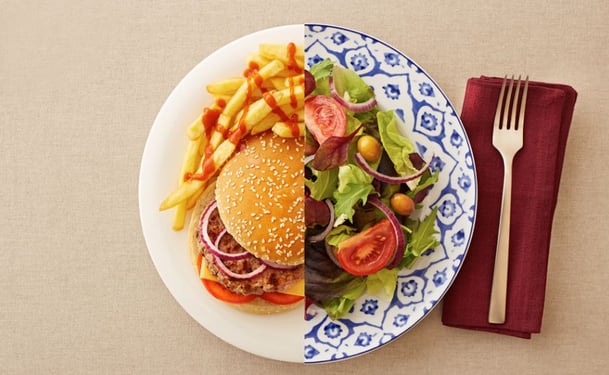Varicose veins are enlarged veins present on the legs and can be caused by your diet and lifestyle. A change in diet can reduce the appearance of varicose veins and relieve the pain caused by these swollen veins.
Causes of Varicose Veins
Varicose veins can be caused by long hours of standing up, obesity, hereditary factors or hormonal changes, but diet may also contribute to the formation of these veins.
Firstly, if you have extra pounds and you need to stand for extensive hours, you are very likely to develop varicose veins. In addition, the excess weight will also interfere with the normal blood circulation. Obesity is associated with overeating or an unhealthy diet.
Frequent constipation can cause varicose veins and this condition restricts the flow of the blood when this returns from the legs to the upper side of the body. Consequently, the blood will have to follow a different path and this may expand the size of other veins in the legs.
A diet that is poor in fibers can be a cause of constipation and varicose veins.
In addition, cholesterol may clog up the veins and result in the formation varicose veins. A diet that is rich in hydrogenated fats and saturated fats facilitate the buildup of cholesterol in the veins.
Foods Recommended
To prevent constipation, a nutritionist will recommend a diet that is poor in fats and carbohydrates and rich in fibers and probiotics.
Fibers may be found in seeds, fruits and vegetables and probiotics may be consumed in the form of yoghurt. However, these are also available in the form of supplements.
Flavonoids are also beneficial for the health of the veins, as they make the vein walls stronger and more elastic. Foods that are rich in flavonoids include:
- Blueberries
- Cherries
- Blackberries
- Wheat products
Vitamin E is also good for the skin, veins and blood circulation. Green leaf vegetables are rich in vitamin E.
Garlic, onions and ginger are particularly recommended, as these will prevent the formation of cholesterol.
Some nutritionists will also recommend liquid diet once per week, which can reduce constipation and regularize the blood flow.
You should also drink a lot of liquids during the day; 2 liters per day will not only be beneficial for your skin and body, but will also improve blood circulation and reduce the chances of developing varicose veins.
If you are overweight, you may also talk to a nutritionist and a personal trainer to lose some weight, which can also reduce the varicose veins.
Foods to Avoid
To reduce the appearance of varicose veins and to prevent the appearance of new ones, you should avoid:
- Sweets and foods that are rich in carbohydrates
- Saturated and hydrogenated fats and processed foods, which affect the blood flow and can facilitate the swelling of the blood vessels
- Foods that are rich in fats (i.e. pork meat).



